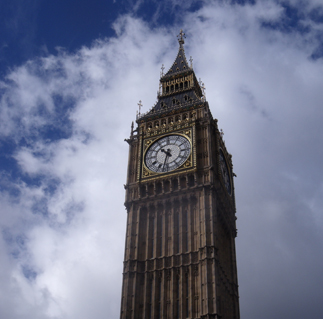How can views of minority groups be squared with the traditional UK respect for free speech; and the fashion on some campuses for ‘safe spaces’ and ‘no platform’ (for speakers of views deemed beyond the pale); and the fact that terrorist radicalisers and recruiters have been active on campuses? A committee of peers and MPs has raised ‘serious concerns over barriers to free speech’. Security – and requirements for extra security for events and speakers assessed as high-risk – should not be a barrier, according to the report.
As for intimidation and efforts to stop controversial talks, the report said: “Where feasible, if security is needed to ensure a legal event can proceed safely, it should be provided so the event can go ahead. Such security should be adequate according to the risks envisaged. Effective action should be taken against protestors who themselves go beyond the law.”
UK law imposes some restrictions on speech such as prohibitions on harassment, or incitement to hatred. In an ideal world, debate would take place in a respectful and orderly fashion. However, provided speech is legal, the right to speak freely includes saying things which may shock or offend others. Further, freedom of association protects the right to peaceful protest. What, if any, restriction should there be on the right to speak freely within the law? That was posed by a report ‘Freedom of Speech in Universities‘ by the Westminster parliament’s Joint Select Committee on Human Rights.
As the report pointed out, universities in England, Wales and Scotland are subject to section 26(1) of the Counter-Terrorism and Security Act 2015. This provision imposes a duty on higher education bodies when exercising their functions, to “have due regard to the need to prevent people from being drawn into terrorism.” It also requires those bodies, when doing this, to have “particular regard” to the duty to secure free speech. As the parliamentarians say, universities must balance their legal duties to ensure free speech with their duty to protect students from being drawn into terrorism. HEFCE (the now defunct funding council for unis) received returns from universities on their carrying out of the Prevent duty. While HEFCE published a high-level report about providers’ compliance with the duty, returns from individual institutions are not published, and the committee heard that the reports are not even seen by the Home Office.
As the report says, there have been unacceptable incidents where freedom of speech has been restricted by students. Typically, controversial subjects are pro- or anti-abortion, sexuality or gender – such as LGBT (Lesbian, gay, bisexual, transgender) – and matters of faith or atheism; such as anti-Israel or pro-Palestinian. The report goes into imposition of conditions on speakers; it says that unreasonable conditions are an interference on free speech rights. “We do not, for example, consider it a reasonable condition that, if a speaker gives an assurance that their speech will be lawful, they be required to submit a copy or outline of their speech in advance.” According to the report, interference is (among other things) when protests become so disruptive that they prevent speakers from speaking or intimidate those attending; or if student groups are unable to invite speakers purely because other groups protest and oppose their appearance.
The report also covers some cases, such as an event assessed as ‘high risk’ at King’s College London in March 2018; ‘hooded and masked protesters stormed the front entrance of the Strand Campus building, jumped over the security barriers, ignited smoke bombs and forced their way into the Safra lecture theatre. In this process they knocked a security guard unconscious and he was taken to hospital’. Others were hurt. Smoke bombs triggered the building’s fire detection systems, resulting in an evacuation of the building, KCL told the committee in a written submission. The report noted that the people behind the disruption at KCL are still unidentified.
The report stresses that freedom of association and expression are protected by Article 10 and 11 of the ECHR (European Convention on Human Rights), and can cover forms of peaceful protest. “However, it is unacceptable for protestors to deliberately conceal their identities, break in with clear intention to intimidate those exercising their rights to attend meetings or to seek to stop events. Universities have a statutory duty to initiate disciplinary measures if individual students or student groups seek to stop legal speech.”
Unless it is unlawful, speech should normally be allowed, the report argued. While the intention behind safe spaces as set up at some unis is understandable and while there must be opportunities for genuinely sensitive and confidential discussions in university settings, the parliamentarians received evidence that safe space policies, when extended too far, can restrict the expression of groups with unpopular but legal views; such as anti-abortion, humanism and secularism. Among the report’s recommendations, it said that where feasible, security should be provided to ensure a legal event can safely go ahead. “Such security should be adequate according to the risks envisaged. Effective action should be taken against protestors who themselves go beyond the law.”
For the full 71-page report visit the Parliament website.
The committee also offers a guidance document on free speech for unis, and students, organising events.










